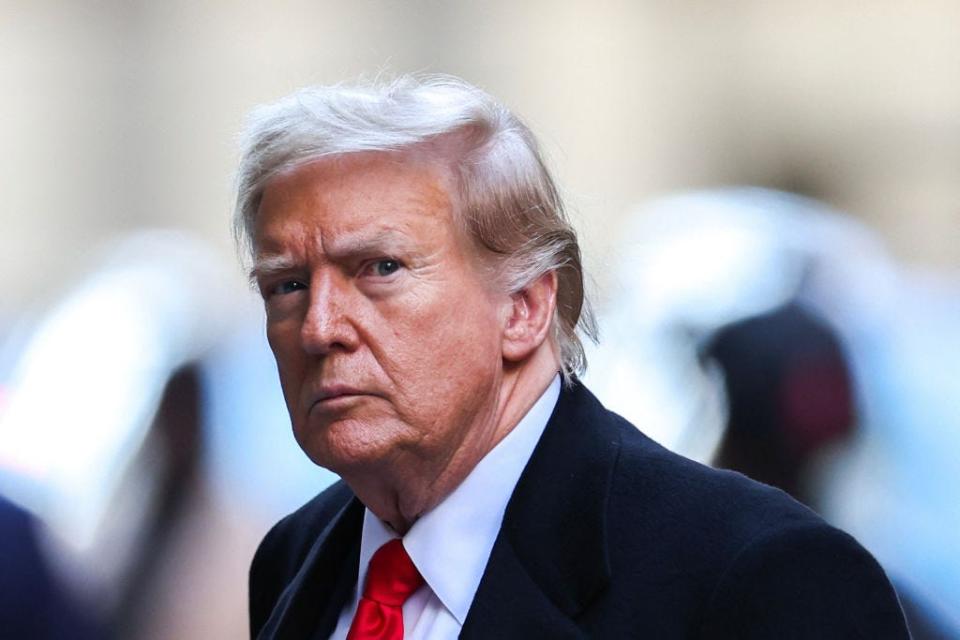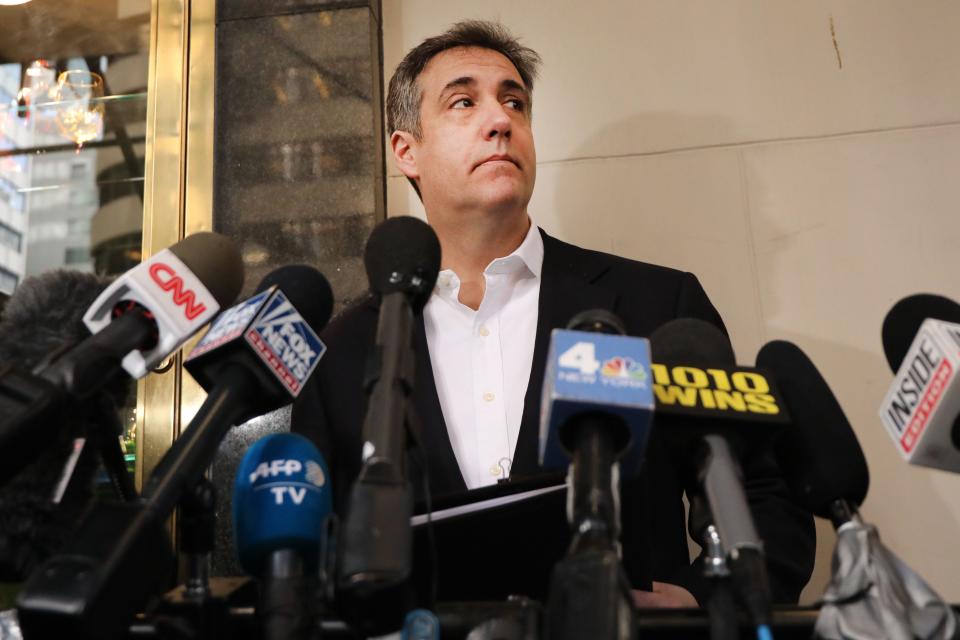How do you find a jury with no biases when it comes to Donald Trump? What trial experts say.
Jury selection may seem like the boring precursor to a trial's juicier parts, but it can be crucial to the outcome. Starting Monday, the teams of lawyers in former President Donald Trump's criminal hush money trial will try to select 12 jurors − and several alternates − who give them the best chance of winning.
The process often involves weeding out jurors with opinions that might influence their decision. But how can you find anyone in Manhattan who doesn't have an opinion of Donald Trump?
To find out, USA TODAY talked to jury and trial experts, who said Trump's and Manhattan District Attorney Alvin Bragg's trial teams may want to ferret out anyone who has an anti-Trump agenda − Trump because those are likely votes to convict, and Bragg to protect a guilty verdict on appeal. Trump's team may look for lone wolves and people who distrust the justice system, knowing that even a hung jury could shield him from the case for years if he wins the November election.
It's a case that could bend the normal rules for criminal defendants, said Jo-Ellan Dimitrius, a jury consultant who has worked on many high-profile trials, including the O.J. Simpson murder trial in 1994-95.
"In a normal criminal case, it is the prosecution that's looking for the white, older male, and it is the defense that's looking for the minority individual, the anti-police individual − but in this case it's actually reversed," she said.

Trump faces 34 felony counts of falsifying business records to unlawfully influence the 2016 presidential election, and jury selection will be the first portion of the trial beginning Monday. New York requires a unanimous verdict from the 12 jurors to convict.
The business records at issue characterized payments from Trump to his former lawyer, Michael Cohen, as compensation for legal services. In reality, they were reimbursements for a $130,000 hush money payment to keep adult film star Stormy Daniels from hurting Trump's 2016 election chances by going public about having had sex with Trump, according to prosecutors. They say the payment was a campaign contribution that exceeded federal limits.
Trump has pleaded not guilty in the case, and he has denied Daniels' claim.
Jury selection could last several days or even weeks. Both trial teams will get a limited number of "peremptory strikes" they can use − essentially vetoes they can exercise to exclude prospective jurors. When those run out, however, the prosecution or defense will be stuck with whichever potential juror comes up next unless Merchan strikes the person "for cause." That means the judge has concluded the person doesn't meet New York juror qualifications or probably can't be impartial in the case.
The two sides can ask Merchan to strike jurors based on responses to questions, but Merchan may not always agree. He said before trial that a potential juror's Republican or Democratic identification, on its own, isn't enough to strike that person for cause.
Bragg's office declined to comment for this story. Two lawyers for Trump didn't respond to a request for comment.
Here's a look at how the two sides could approach jury selection:
Finding pro- or anti-Trumpers?
Ahead of trial, Judge Juan Merchan decided on a list of 42 questions the prospective jurors will be asked orally in court, and both sides can ask follow-up questions.
Merchan isn't allowing questions about whether jurors voted for Trump or plan to vote for him. But he is allowing several questions that could reveal a juror's political preferences. For example, has the potential juror attended a Trump rally, or an anti-Trump rally? Has the person ever followed Trump, or an anti-Trump group, on social media? Where do the prospective jurors get their news? All those questions are on the questionnaire.
Trump is unlikely to get many fervent supporters on his Manhattan jury. About 87% of Manhattan residents voted for Joe Biden in the last presidential election, according to Politico.
But that doesn't mean there aren't political shades to consider, Mitchell Epner, a longtime New York litigator and former federal prosecutor, told USA TODAY.
"There are lots of different flavors amongst Manhattan Democrats, which go all the way from left of the Democratic Socialists of America to people who in other counties would be, by profile, Republicans," he said.
Epner added that even prosecutors wouldn't want a juror who has an anti-Trump agenda "because, if it later comes out that a juror did have an agenda to convict Donald Trump, that could be a basis for an appeal."
Looking for the juror who will hang the case?
There are three basic outcomes from a jury trial: The jury convicts the defendant, the jury acquits the defendant, or the jury "hangs" − meaning jurors can't come to an agreement and the judge is forced to declare a mistrial. Unlike when a defendant is acquitted, prosecutors are able to retry defendants after mistrials.

But retrials don't usually happen after there's a hung jury, Epner said. Prosecutors are hesitant to bring the case again unless they believe there's some greater public policy issue at stake or they feel confident they would get a conviction from another jury.
"Particularly in this case, where there is a significant possibility that the defendant could not be tried a second time before the 2024 election, a hung jury would be a major accomplishment for the defense team," Epner said. If Trump wins the election in November, there are significant legal questions about whether he could be prosecuted while in office.
That gives Trump's team even more impetus than a typical defendant to look for a juror who isn't aiming to fit in and might go against the grain.
"Defense counsel are typically looking for iconoclasts: people who consider themselves to be lone wolves or free spirits or in some way countercultural, and who have distrust of the system," Epner said.
The social media 'polygraph test'
While jurors are answering questions, the trial teams will be conducting social media checks that are akin to polygraph tests on the potential jurors, Dimitrius said.
On high-profile cases, people who want to be on the jury may alter their responses to what they believe one side or the other wants to hear, Dimitrius told USA TODAY.
"By looking at their oral responses to the questionnaire, and then comparing that to what they may have on social media, you can see if they are being forthcoming, or if they may be hiding something," she said.
Here's an example of how that could play out: Potential jurors will be asked if they follow either Trump or an anti-Trump organization on social media. If they say they don't, but their profiles indicate they do, that could raise questions about whether they are intentionally lying to better their chances of getting on the jury.
Building a relationship to last through trial
Jury selection isn't just about what the lawyers and defendant think of the potential jurors, according to Molly Murphy, a trial consultant who has worked on jury selection and trial strategy across hundreds of cases. It's also about what potential jurors are thinking about the people questioning them and the defendant who is watching.
"There is a connection that starts, and the jury is assessing each lawyer's integrity," Murphy told USA TODAY. "They are really constantly looking at how the lawyers behave, and how Mr. Trump is going to be behaving, and how the prosecution is behaving."
Epner said a trial is an opportunity for each side to tell its own story, and stories are more persuasive if the audience − in this case, the jury − trusts and likes the storyteller. Developing that relationship starts at the very beginning.
"Somebody who is both disliked and distrusted is highly unlikely to tell a persuasive story," he said.
This article originally appeared on USA TODAY: An unbiased New York jury for Trump hush money case? Experts weigh in.


